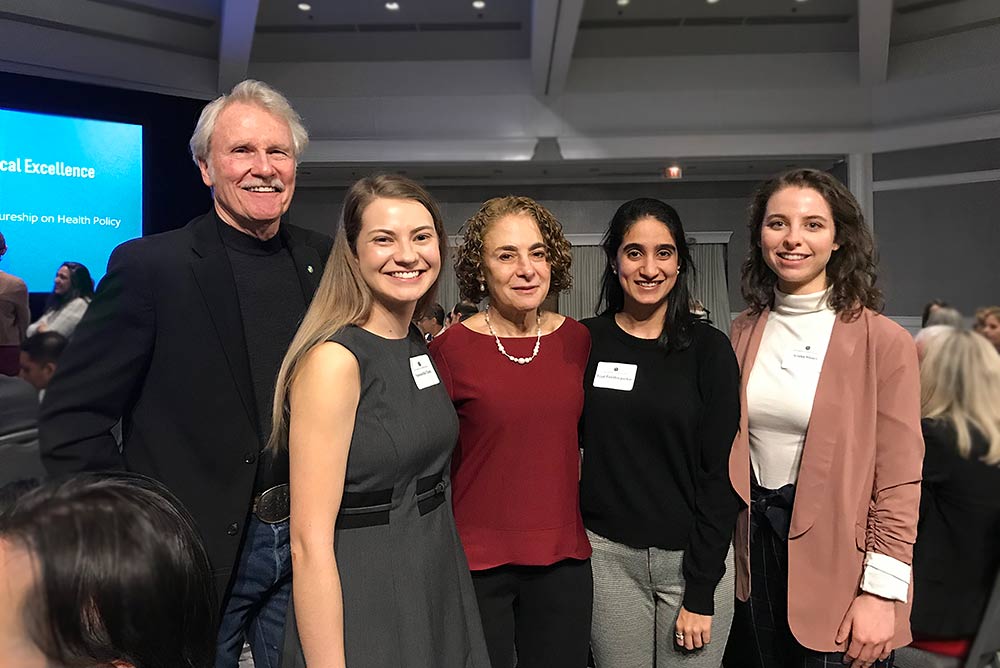The following remarks were made by former Governor Kitzhaber addressing the attendees at our annual event on health care policy:
“I want to offer a few words of context for those members of the health sector community gathered here this evening—and especially for the new generation of leaders at many of our hospitals, health plans, CCOs and at the Oregon Association of Hospitals and Health Systems. You have assumed the reigns of leadership and influence at a time of polarization and divisiveness in our nation, and a time of uncertainty in our health care system that finds us at an inflection point and at a cross-road for the Oregon story of health care transformation. Whether you realize it or not, you have become the stewards of a twenty-five-year legacy of courage and innovation that never backed away from asking the difficult questions, nor from answering those questions in a way that served the best interest of Oregonians.
During the development of our priority list in 1989 and the enactment of the Oregon Health Plan in 1994, Oregon engaged in perhaps the most honest conversation in the nation regarding the intersection of the cost of modern medicine and the reality of fiscal limits; and for the need for equity and accountability in the allocation of finite public resources. The creation of our Coordinated Care Organizations in the depths of the Great Recession—and in the face of high unemployment, a polarized state and a divided legislature—represents not only a triumph of good policy over partisan politics; but also, one of the few, statewide efforts in America that explicitly seeks to bend down the medical cost curve while maintaining enrollment, outcomes, quality and patient satisfaction.
This long, proud history of innovation and accomplishment was made possible by men and women who understood the larger public interest, leaders who shared a common mission; leaders who were willing to sit down together, to build relationships, to build trust, to collaborate and cooperate to make the Oregon health care system work for all of us, not just for some of us. That is the legacy you have inherited—and maintaining that legacy will be sorely tested over the next few years as we seek to apply what we have learned to the commercial market…the last frontier and perhaps the most difficult challenge of all—because it is here that the tension between public interest, self-interest and corporate interest will be most acute.
This challenge will be complicated—and undermined, if we allow it— by the increasingly toxic environment that seems to define American politics in 2020—an environment of bitterness, hyper-partisanship, hyperbole and the erosion of civility in our public discourse. We can choose to conduct the policy debate over the future of health care in Oregon in the context of this national malaise, or we can choose to rise above it—which is what we have done in the past, and which we are capable of doing again. It is a choice.
So, if I may, let me leave you with one thought, one observation—something for all of us to contemplate, but especially for the new generation of leadership, whose choices, tone and willingness to trust and collaborate over the next few years will write the next chapter of the Oregon Story. It has been a pretty good story up to now…what it will be in the future is in your hands.
Here is the observation. My entire career in public service was animated by one central belief—a belief that has been validated over and over again—the belief that a hopeful, inclusive, bright future is the product of a common mission, of a sense of common purpose, of something larger than ourselves; of something that we are all willing to invest in and sacrifice for. Because, without a common mission, there can be no community and it is the lack of community that makes us susceptible to the divisiveness and polarization that is sweeping our country. And we are better than that.
We have a choice—a choice about what we want our health care system to be … about what we want our state to be. It is a choice to put understanding before reaction; to put collaboration before conflict; to put reconciliation before recrimination. Reconciliation begins with each of us; it begins in the heart of each individual, animated by a desire and a choice to make our community better; and to repair the fabric of our society and of this special place we call Oregon. “
